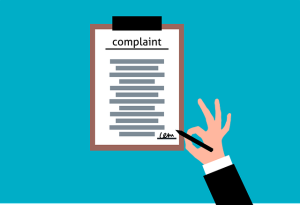What Happens When An Insurance Claim Is Made Against You?
Insurance is a crucial aspect of our lives, providing financial protection and peace of mind in the face of unexpected events. Whether it’s auto insurance, home insurance, or liability insurance, we rely on these policies to cover us in times of need.
However, have you ever wondered what happens when an insurance claim is made against you? In this article, we will delve into the process and steps involved when someone files a claim against your insurance policy. Understanding this process is essential to ensure you are prepared and informed if you ever find yourself in such a situation.

Understanding Insurance Claims
Before we explore what happens when a claim is made against you, let’s first understand the concept of insurance claims.
An insurance claim is a formal request made by the policyholder or a third party to the insurance company, seeking compensation for damages, losses, or injuries covered under the insurance policy.
When you purchase an insurance policy, you essentially enter into a contract with the insurance company. In the event of a covered loss, the insurance company agrees to fulfill its obligations and provide financial assistance as outlined in the policy terms and conditions.
When an Insurance Claim Is Made Against You
Now, let’s focus on the scenario where someone files a claim against your insurance policy. This situation typically arises in liability insurance, such as auto or homeowner’s insurance, where you are responsible for any damages or injuries caused to others.
When an accident occurs, the affected party may choose to file a claim against your insurance policy to seek compensation for their losses. Here’s a step-by-step breakdown of what happens when an insurance claim is made against you:
Step 1: Receiving the Claim Notification
The first indication that a claim has been filed against you is receiving a claim notification. This notification can come in various forms, such as a letter, email, or phone call. The affected party or their representative will inform you of the incident, the damages or injuries incurred, and their intention to seek compensation through your insurance policy. It is crucial to take this notification seriously and act promptly.
Step 2: Contacting Your Insurance Company
Upon receiving the claim notification, the next step is to contact your insurance company. Reach out to your insurance agent or the claims department to inform them about the situation. Provide them with all the relevant details, including the claimant’s information, incident description, and any supporting documentation you may have. It’s important to cooperate fully with your insurance company during this process.
Step 3: Investigation Process
Once the claim is reported to your insurance company, they will initiate an investigation process to gather all the necessary information and assess the validity of the claim. This investigation may involve collecting statements from involved parties, reviewing any available evidence or documentation, and even conducting site visits or interviews if required. The purpose of the investigation is to determine the extent of your liability and the coverage provided by your insurance policy.
Step 4: Legal Proceedings
In some cases, if the claim is complex or disputed, it may progress to legal proceedings. This typically occurs when there are disagreements regarding liability or the amount of compensation being sought. If legal proceedings become necessary, your insurance company will engage legal professionals to represent your interests and defend your case in court. It’s crucial to cooperate with your insurance company and your appointed legal counsel throughout this process.
Step 5: Settlement or Judgment
Once the investigation is complete, and if the claim is deemed valid, your insurance company will either negotiate a settlement with the claimant or proceed to judgment.
A settlement is a mutual agreement between the parties involved, where a specific amount of compensation is agreed upon, and the claim is resolved without going to court. On the other hand, if the case goes to judgment, a court will decide the final outcome, including the amount of compensation, if any, to be awarded.
The Impact on Your Insurance Premiums
When an insurance claim is made against you, it can have implications for your future insurance premiums. Insurance companies consider claims history and the level of risk associated with an individual when determining premium rates. If you have a history of multiple claims or a significant claim, it may result in an increase in your premiums upon policy renewal. However, this can vary depending on your insurance provider and the specific circumstances surrounding the claim.
Frequently Asked Questions (FAQs)
1. Will an insurance claim made against me always lead to increased premiums?
Not necessarily. While some claims may impact your premiums, it depends on various factors, including the severity and frequency of the claims, your claims history, and your insurance provider’s policies.
2. What happens if the claim exceeds my policy limits?
If the claim amount exceeds your policy limits, you may be personally responsible for the additional expenses. It’s crucial to review your policy limits and consider purchasing additional coverage if necessary.
3. Can I dispute a claim made against me?
Yes, you have the right to dispute a claim if you believe you are not liable or if you disagree with the amount being claimed. Your insurance company and legal counsel can guide you through the dispute resolution process.
4. How long does the claims process typically take?
The duration of the claims process can vary depending on the complexity of the claim, the availability of information, and any legal proceedings involved. It can range from a few weeks to several months. Your insurance company will keep you informed about the progress and any significant updates throughout the process.
5. Can an insurance claim made against me affect my credit score?
No, an insurance claim itself does not directly impact your credit score. However, if you fail to pay any resulting judgments or settlements, it could lead to collections or legal actions that may affect your credit.
6. What if I disagree with my insurance company’s decision regarding the claim?
If you disagree with your insurance company’s decision, you can communicate your concerns and provide any additional supporting information. You can also seek legal advice to understand your options for further dispute resolution.
Conclusion
In conclusion, when an insurance claim is made against you, it initiates a series of steps and processes involving notification, contacting your insurance company, investigation, legal proceedings if necessary, and ultimately, settlement or judgment. It is crucial to cooperate fully with your insurance company, maintain detailed records, and seek legal advice if needed. Understanding the potential impact on your insurance premiums and taking appropriate measures can help protect your interests. Remember, your insurance company is there to support you throughout the claims process.



